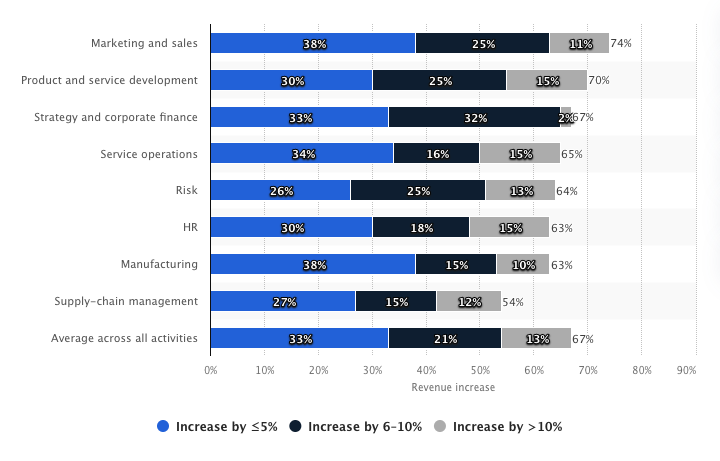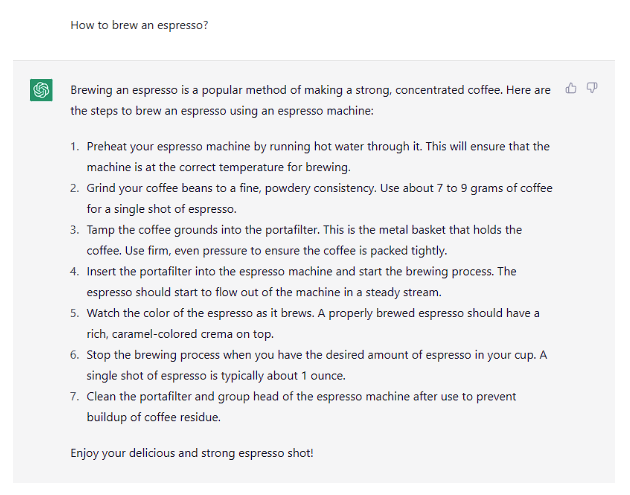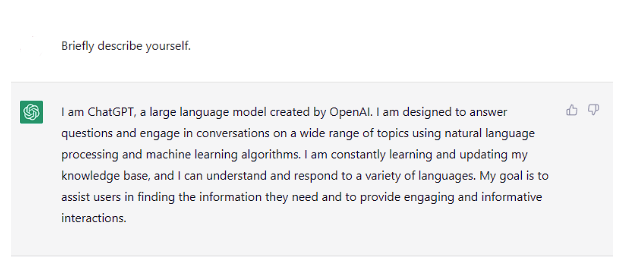
- Red Search
- Resources
- AI Content & SEO
AI Content & SEO: Everything You Need To Know
-
 Hans Andrew Consuegra
Hans Andrew Consuegra
Search engines have been our go-to for everyday queries, store locations, and information. But with the help of artificial intelligence, AI SEO will change how businesses compete on search results pages, forever.
Basic SEO strategies were sufficient back then. But as AI takes the world by storm, SEOs, content writers, digital marketers and business owners (let’s say basically, every profession) are all starting to incorporate AI into their growth strategies quickly.
We’re at a pinnacle point in this emerging technology, where it’s either to adopt or to get left behind.
Here’s everything you need to know about AI content and what it means for your SEO strategy.
AI Technology: In a Nutshell
Artificial intelligence (AI) covers emerging technologies that aim to perform cognitive and technical tasks faster and better than humans. It includes machine learning (ML), natural language processing (NLP), deep learning, and computer vision, among other technologies.
Think self-driving cars, product detection sensors, smart cameras, smartphone assistants, and chatbots.
Businesses are now seeing positive results by implementing AI into their campaigns. An AI adoption study reveals that about 21.33% of businesses reported a 6-10% revenue increase after adopting artificial intelligence.

With the data suggesting AI’s positive impact on marketing and all other activities, people will certainly wonder whether it will take over SEO.
But will AI actually replace SEO?
On a large scale, no. Let’s discuss the latest AI breakthroughs and why the technology won’t overshadow the human touch.
What is OpenAI’s ChatGPT?
ChatGPT is a full-blown AI chatbot system developed and released by OpenAI on November 2022 to test the lengths of a complex and powerful AI system.
It is a generative pre-trained transformer (GPT) which combines machine learning and natural language processing algorithms to provide useful answers to countless questions.
ChatGPT is designed to find information about a question and provide informative and engaging conversations with users.
When you input a query, ChatGPT analyses that text using several NLP techniques (tokenisation, parsing, part-of-speech, etc.). After that, the AI will use its neural network to generate a response.
That neural network is trained on massive amounts of text data through machine learning and will identify patterns and relationships between the phrases and words. It will then generate a response based on its training and user input.
For example, suppose you ask it how to brew an espresso. In that case, ChatGPT will first analyse that text, look for similar patterns in its database using its neural network, and generate a response based on that information.

ChatGPT is a big deal for businesses and content developers. The tool provides accurate information in areas where the AI tool has adequate training data. Of course, it’s not smart enough to take over humans and SEO specialists, but its creativity and speed make it an excellent goldmine for reliable and engaging information.
No wonder why it hit the million mark a few days after its launch.
Here’s another example of ChatGPT at work, describing itself:

Pretty neat, right?
Now that we’ve touched the surface of AI tools and AI-generated content let’s take a deep dive into its impact on SEO.
How AI Content Impacts SEO
AI has been part of search engines longer than most would expect. Google’s RankBrain and BERT are deep-learning algorithms that use machine learning and natural language processing—similar to the tools implemented for ChatGPT.
Both algorithms are designed to improve Google’s understanding of search queries and provide a cleaner and more accurate search results page.
So if you thoroughly understand AI and its influence on search engine algorithms, you can spot opportunities to boost your SEO with the same available tools.
Aside from content development, you can also use AI for data analytics and content gap research. With AI, you can do SEO-related tasks more efficiently.
AI and SEO perfectly match together. But does that mean AI content will become better at ranking than human-written content?
Is It the End for Human-Written Content?
Comparing both contents isn’t as easy as night and day as AI content becomes more human than ever.
Here are a few pros and cons of AI-generated content to properly put it into perspective:
Pros: AI-Generated Content is more cost-effective
Cost efficiency and effectiveness are prime movers of AI development, including content generation.
AI tools generate content faster and cheaper than the human mind. Businesses using AI to generate content should pay less time and money for good results.
Pros: AI is consistently improving
Machine learning algorithms can solve new problems and process complex language over time. Rapid progressions and improvements push AI to develop human-like language that engages with customers and improves upon feedback.
But depending solely on AI does not come without a catch.
Cons: AI content generators have limits
AI tools may seem sophisticated, but they’re merely codes and machines that mimic the human neural network. Their functionality is limited to their programming.
ChatGPT, for example, is limited to material published on the Web. It uses available databases to gather information from online sources and develop something new.
However, ChatGPT and similar AI tools cannot create original information and cannot understand user intent. They can write content quickly but will fail to establish a human connection.
Cons: AI content cannot guarantee quality
AI SEO heavily relies on algorithms and data analytics. If you’ve tried interacting with AI, you may notice it tends to be keyword-dense and lacks an engaging tone.
Moreover, AI-generated content may fall flat on your audience’s ears. That’s why human-written content matters and content developers only use AI as an ace in the hole.
Another quality concern among AI tools is inconsistent facts. In SEO, facts and figures shape your success, whether generating content or technical SEO.
SEO specialists and human content writers should fact-check AI-generated content to ensure quality, clarity, and accuracy.
When done poorly, these shortfalls in quality expose AI content to Google’s AI-detecting crawlers.
Given these pros and cons, can AI content help you rank higher on Google?
Does AI Content Rank on Google?
Down to the burning question: Can you leverage AI-generated content to boost your content marketing strategy?
The short answer is yes.
The long answer is that you need to use it to improve your content rather than publish purely AI-generated content.
Quality always overshadows quantity. You can use AI to publish several daily content, but a single human-written content that engages with users and drives impressions through the roof will produce better results.
As the old saying goes, just because you can do something, doesn’t mean you should.
What Does Google Think About AI Content?
Google approves using partial AI-generated content for SEO as long as it meets search guidelines and provides original and valuable information to readers.
However, it strictly draws the line on automation for search manipulation. In its blog, Google stated that using automation systems, including AI, to generate content that manipulates ranking violates Google’s spam policies.
Google maintains zero tolerance for plagiarism and low-quality thin content. While it won’t always result in a penalty, you will have slim chances to rank with mass-produced AI-written content.
That’s why it’s crucial to use AI tools and have a human editor polish, fact-check, and improve the content to engage readers and address search intent. Google has been waging war against black hat tactics and webspam for decades, and its anti-spam tools like SpamBrain get better.
Can Google Detect AI content?
While AI content development systems are becoming more complex and natural, Google keeps up by being adept and meticulous at detecting AI-written content.
Google uses several techniques to flag and classify AI-generated content using Natural Language Processing (NLP) content. It does so by looking for syntax and patterns that are frequently produced in computer-generated content.
In short, we anticipate that Google’s core algorithm can detect AI-generated content. Their core algorithm looks for known inconsistencies and trends in a piece of content written by AI to manipulate search rankings without valuing user experience or meeting search intent.
We anticipate that Google will dramatically roll out new algorithm updates to penalise websites using AI-generated content to abuse search rankings.
How We Use AI To Power our SEO Campaigns
Using AI as an assistant tool can have ample benefits to help boost SEO efforts.
Here are proven ways to complement AI to your SEO strategy, from planning to execution:
AI for Topic & Keyword Research
AI chatbots are powerful keyword research and analysis tools for gathering user insights and input data. They can provide reliable insights about the keywords people search in your niche and how they appear in Google SERPs.
You can use information from AI SEO to improve your content and classify related keywords.
Chatbots are also helpful for keyword research and analysis, essential for any successful SEO campaign.
AI for Optimised User Intent
Using AI for SEO can help you compete in the ranks by streamlining high-quality content targeted for user intent. With AI content & SEO, businesses & specialists can build content tailored to user intent without spending excess time optimising each piece.
AI for Technical SEO
Artificial intelligence can strengthen your SEO’s technical backend by automating tedious data entry and encoding tasks such as:
- Technical auditing,
- Creating JSON-LD schema,
- Internal linking
- Writing robot crawl directives and meta tags,
- Programmatic projects to automate specific SEO processes.
There’s more to AI than just writing content. Its technical advantage can save you time and resources, allowing you to focus on other business aspects beneficial for your growth.
AI Tools: SEO Boon or Bane?
Automation and artificial intelligence are the future of SEO. That said, businesses using AI tools to boost their SEO efforts (ethically) can greatly reduce costs and boost execution efficiency.
A well-executed SEO campaign driven by AI can grow your business unprecedentedly. Speak with our SEO Sydney specialists today, and let’s chat about how we can help grow your business.
Written by





